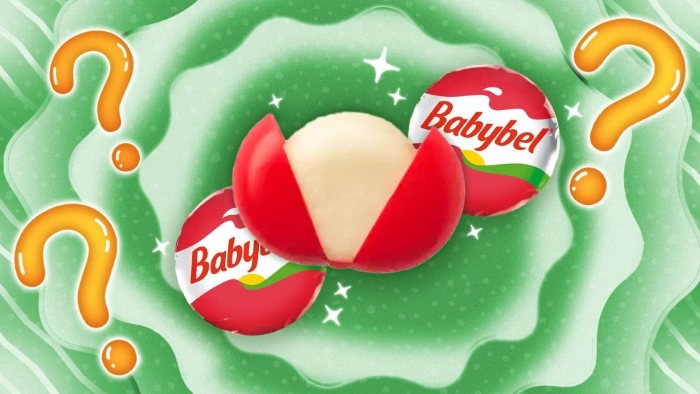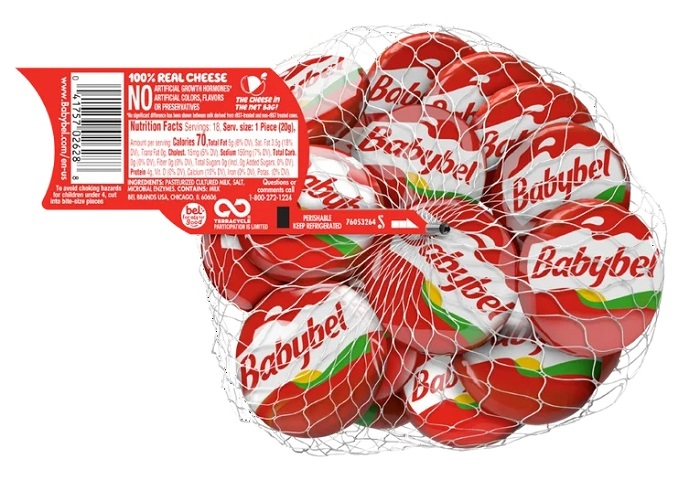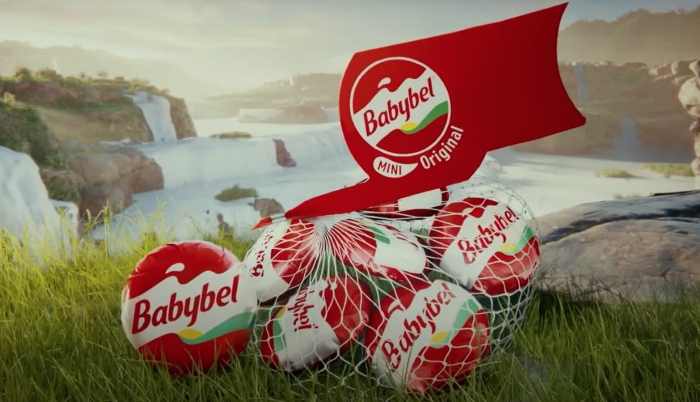Cheese is probably the most popular dish in the whole world, and out of all the types available, Babybel cheese must be one of the finest. Bared to its red wax covering, it tastes wonderful, convenient to hold in hand, and ideal for children as well as grown-ups to consume as a snack. Others consume Babybel cheese daily as a snack, but of the most frequent queries about this food, one involving its nutrition, more specifically, its protein content, is one of the most frequent.
Protein is what the body relies on for food. It’s what makes muscle, which will keep you satiated, and gives energy. Is Babybel cheese, however, a good source of protein, though? How much protein does it really have, and how does that compare to other foods? Let’s find out and continue.
Table of Contents
What Is Babybel Cheese?

Babybel cheese is a spherical red wax-covered cheese snack. Babybel is owned by French firm Bel Brands. Babybel is extensively utilized as it’s individually wrapped, convenient, and slightly creamy-flavored consumed by children and adults alike.
Babybel is available in many flavors, but some of the most widely consumed ones are:
- Original Babybel (Mini Babybel Original) – It’s semi-hard Edam-textured cheese.
- Light Babybel – Less fat and calories.
- Other Flavors – Cheddar-style, Gouda-style, or mozzarella-style Babybels are eaten in other nations.
No flavor matters, Babybel is a favorite snack in portion-sized, convenient packaging.
How Much Protein Is in Babybel Cheese?
It varies somewhat by type, but this is typical:
- Mini Babybel Original (21g cheese wheel): roughly 5g protein
- Mini Babybel Light: roughly 5g protein, but fewer calories and fat
- Other types: generally 4-6g of protein per serving
So one small Babybel has almost as much protein in it as an egg, and that’s a heavy protein punch for such a small snack.
Why Do We Need Protein?
Let’s remember before we go on with Babybel why protein matters:
- Builds Muscles: Protein fixes and develops muscles, perfect for the physically active.
- Keeps You Satisfied: Protein snacks satisfy you longer than cookie snacks.
- Supports the Body: Protein supports the body in constructing skin, hair, and nails.
- Makes You Full of Energy: It is paired with fats and carbohydrates to make you full of energy.
For this reason, a little portion of Babybel having 5g of protein is healthier than chips or cookies low or free in protein.
Babybel Cheese Nutrition Facts
A Mini Babybel Original (21g) nutrition is as follows:
- Calories: 70
- Protein: 5g
- Fat: 6g
- Saturated Fat: 4g
- Carbohydrates: 0g
- Calcium: 15% daily value
- Sodium: 160mg
For Mini Babybel Light:
- Calories: 50
- Protein: 5g
- Fat: 3g
- Saturated Fat: 2g
- Calcium: 20% daily value
- Sodium: 180mg
This indicates Babybel is a good source of high protein, moderate fat and no carbs. It’s also a good source of calcium, which is ideal for healthy bones.
Is Babybel a Good Protein Snack?

Yes, Babybel is a healthy protein snack. And here’s why:
- Portable: Easy to bring along in lunchboxes or bags.
- Protein-Dense: 5g protein per small wheel.
- Low Carbohydrate: Perfect for low-carb or keto diet.
- Source of Calcium: Perfect for bone health.
- Portion-Controlled: Individual wheels packaged so that you won’t overindulge.
Babybel is a healthier snack than cheese or processed food.
Babybel Compared to Other Protein Snacks
How is Babybel protein compared to other favorite snacks (per serving):
- 1 Babybel Original (21g): 5g protein
- 1 hard-boiled egg: 6g protein
- 1 string cheese (mozzarella stick): 6g protein
- 1 cup potato chips: 2g protein
- 1 cookie: less than 1g protein
This puts Babybel right there with an egg or string cheese but far better than chips or candy in terms of protein.
How Many Babybels Can I Eat Daily?
One Babybel is a pretty good snack, but how many you will consume will really depend somewhat on what you are consuming.
If you just need a little bite, 1–2 Babybels should suffice.
If you need a bit more protein, 2–3 is fine.
Just take note: Babybel also has fat and sodium, and consuming more than one or two per day might not be the best. Babybel as a healthy addition to your diet may be eaten every day, however, not excessively.
Who May Need Babybel Protein?
Babybel cheese is perfect for almost everyone:
- Kids: Perfect for lunchboxes since it’s healthy and delicious.
- Students and Workers: Handy snacks during busy days.
- Athletes: Protein helps growth of back muscles following exercise.
- Weight Watchers: Lower calories but all the protein in Babybel Light.
- Low-Carb Diet Adherents: No carbs, plenty of protein, bonus to keto diet.
Creative Uses of Babybel Cheese

- Eat it as a snack.
- With sliced apples to provide salty and sweet contrast.
- Use crackers as a snack.
- Melt in sandwiches to provide richness.
- Chop and sprinkle in to provide protein boost to salads.
It is convenient to work with and convenient to use because of its packaging and serving size, Babybel.
Possible Disadvantages of Babybel Cheese
Babybel is a healthy food, but don’t forget:
- High in Saturated Fat: Especially the Original variety. Excess will affect heart health.
- Sodium Content: Some of them contain 150–180mg of sodium that builds up when you eat a lot of them.
- Not Vegan: Based on cow milk, so not vegan-sensitive or for dairy intolerance patients.
Assuming you have it in moderation, these are not deal-breakers.
Interesting Facts About Babybel
- Babybel was actually made in France in 1952.
- The red wax seal preserves it and is convenient to open.
- Babybel is sold in more than 120 countries worldwide.
- You have more than 10 varieties depending on where you are located.
- It is most widely sold as a healthier option to chips or cookies.
Frequently Asked Questions Regarding Protein in Babybel Cheese
How many proteins does a Babybel cheese have?
One Mini Babybel Original has approximately 5g of protein.
Can Babybel be consumed to lose weight?
Yes, especially the Light one. It has fewer calories but as much protein.
Can children have Babybel cheese daily?
Yes, Babybel is fine for children and gives them calcium and protein but serve it with other foods.
Does Babybel cheese have carbs?
No, Babybel cheese essentially has zero carbs, so keto diets are not bothered with it.
An egg or a Babybel has more protein?
One whole egg has around 6g, and Babybel has around 5g. They’re not all that different, really.
Babybel cheese is more than some hip red wax treat, it’s also a decent source of protein. One slice has around 5g of protein, roughly equivalent to the same amount of protein as an egg and a heck of a lot more than most other snack foods such as chips or cookies.
It’s convenient, portion-sized, and tasty, making it a child’s dream, an athlete’s dream, and an on-the-go busy adult’s dream. It has fat and sodium, but as long as you are using it in moderation, it’s a healthy source to add to your diet.
The next time you pop open that teensy tiny little red wax, you’ll know you’re satisfying that snacking urge, while providing your body with a wonderful dose of protein.

